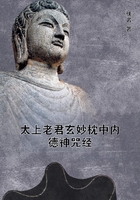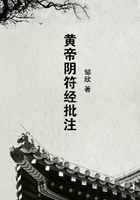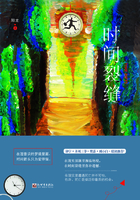A significant proof of the widespread interest in natural history is found in the zeal which showed itself at an early period for the collection and comparative study of plants and animals.Italy claims to be the first creator of botanical gar dens, though possibly they may have served a chiefly practical end, and the claim to priority may be itself disputed.It is of far greater importance that princes and wealthy men, in laying out their pleasure-gardens, instinctively made a point of collecting the greatest possible number of different plants in all their species and varieties.Thus in the fifteenth century the noble grounds of the Medicean Villa Careggi appear from the descriptions we have of them to have been almost a botanical garden, with countless specimens of different trees and shrubs.Of the same kind was a villa of the Cardinal Trivulzio, at the beginning of the sixteenth century, in the Roman Campagna towards Tivoli, with hedges made up of various species of roses, with trees of every description--the fruit-trees especially showing an astonishing variety--with twenty different sorts of vines and a large kitchen-garden.This is evidently something very different from the score or two of familiar medicinal plants which were to be found in the garden of any castle or monastery in Western Europe.Along with a careful cultivation of fruit for the purposes of the table, we find an interest in the plant for its own sake, on account of the pleasure it gives to the eye.We learn from the history of art at how late a period this passion for botanical collections was laid aside, and gave place to what was considered the picturesque style of landscape-gardening.
The collections, too, of foreign animals not only gratified curiosity, but served also the higher purposes of observation.The facility of transport from the southern and eastern harbors of the Mediterranean, and the mildness of the Italian climate, made it practicable to buy the largest animals of the south, or to accept them as presents from the Sultans.The cities and princes were especially anxious to keep live lions even where a lion was not, as in Florence, the emblem of the State.The lions' den was generally in or near the government palace, as in Perugia and Florence; in Rome, it lay on the slope of the Capitol.The beasts sometimes served as executioners of political judgements, and no doubt, apart from this, they kept alive a certain terror in the popular mind.Their condition was also held to be ominous of good or evil.Their fertility, especially, was considered a sign of public prosperity, and no less a man than Giovanni Villani thought it worth recording that he was present at the delivery of a lioness.The cubs were often given to allied States and princes, or to Condottieri as a reward of their valor.In addition to the lions, the Florentines began very early to keep leopards, for which a special keeper was appointed.Borso of Ferrara used to set his lion to fight with bulls, bears, and wild boars.
By the end of the fifteenth century, however, true menageries (serragli), now reckoned part of the suitable appointments of a court, were kept by many of the princes.'It belongs to the position of the great,' says Matarazzo, 'to keep horses, dogs, mules, falcons, and other birds, court-jesters, singers, and foreign animals.' The menagerie at Naples, in the time of Ferrante, contained even a giraffe and a zebra, presented, it seems, by the ruler of Baghdad.Filippo Maria Visconti possessed not only horses which cost him each 500 or 1,000 pieces of gold, and valuable English dogs, but a number of leopards brought from all parts of the East; the expense of his hunting birds, which were collected from the countries of Northern Europe, amounted to 3,000 pieces of gold a month.King Emanuel the Great of Portugal knew well what he was about when he presented Leo X with an elephant and a rhinoceros.It was under such circumstances that the foundations of a scientific zoology and botany were laid.
A practical fruit of these zoological studies was the establishment of studs, of which the Mantuan, under Francesco Gonzaga, was esteemed the first in Europe.All interest in, and knowledge of the different breeds of horses is as old, no doubt, as riding itself, and the crossing of the European with the Asiatic must have been common from the time of the Crusades.In Italy, a special inducement to perfect the breed was offered by the prizes at the horse-races held in every considerable town in the peninsula.In the Mantuan stables were found the in-fallible winners in these contests, as well as the best military chargers, and the horses best suited by their stately appearance for presents to great people.Gonzaga kept stallions and mares from Spain, Ireland, Africa, Thrace, and Cilicia, and for the sake of the last he cultivated the friendship of the Sultans.All possible experiments were here tried, in order to produce the most perfect animals.
Even human menageries were not wanting.The famous Cardinal Ippolito Medici, bastard of Giuliano, Duke of Nemours, kept at his strange court a troop of barbarians who talked no less than twenty different languages, and who were all of them perfect specimens of their races.
Among them were incomparable _voltigeurs _of the best blood of the North African Moors, Tartar bowmen, Negro wrestlers, Indian divers, and Turks, who generally accompanied the Cardinal on his hunting expeditions.When he was overtaken by an early death (1535), this motley band carried the corpse on their shoulders from Itri to Rome, and mingled with the general mourning for the open-handed Cardinal their medley of tongues and violent gesticulations.















